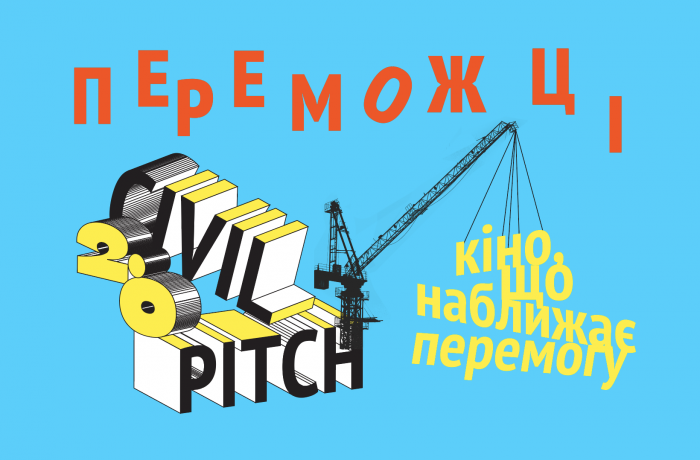
We've launched Civil Pitch to strengthen the links between civil society activists and documentary filmmakers willing to bring about societal changes. By combining their experience, knowledge and efforts, documentary filmmakers and civil activists have been creating films on pressing social issues that've been travelling around the world during two editions of the Civil Pitch project.
The Civil Pitch project was held for the first time in 2019 under the slogan "Cinema that Changes". In 2021, Civil Pitch 2.0 was launched, and with the beginning of a new phase of Russia's war against Ukraine in 2022, it adapted to the new reality by changing its slogan to "Films that bring the victory closer". The Civil Pitch 2.0 programme received 150 applications. The 4 projects selected by the jury received not only grants for film production, but also mentoring support at all production stages. The four winning films of Civil Pitch 2.0 tell stories about war and people from a unique perspective. The world premiere of the films took place at the 30th Hot Docs Film Festival, and their national premiere occurred in 2023 at the 20th anniversary Docudays UA.
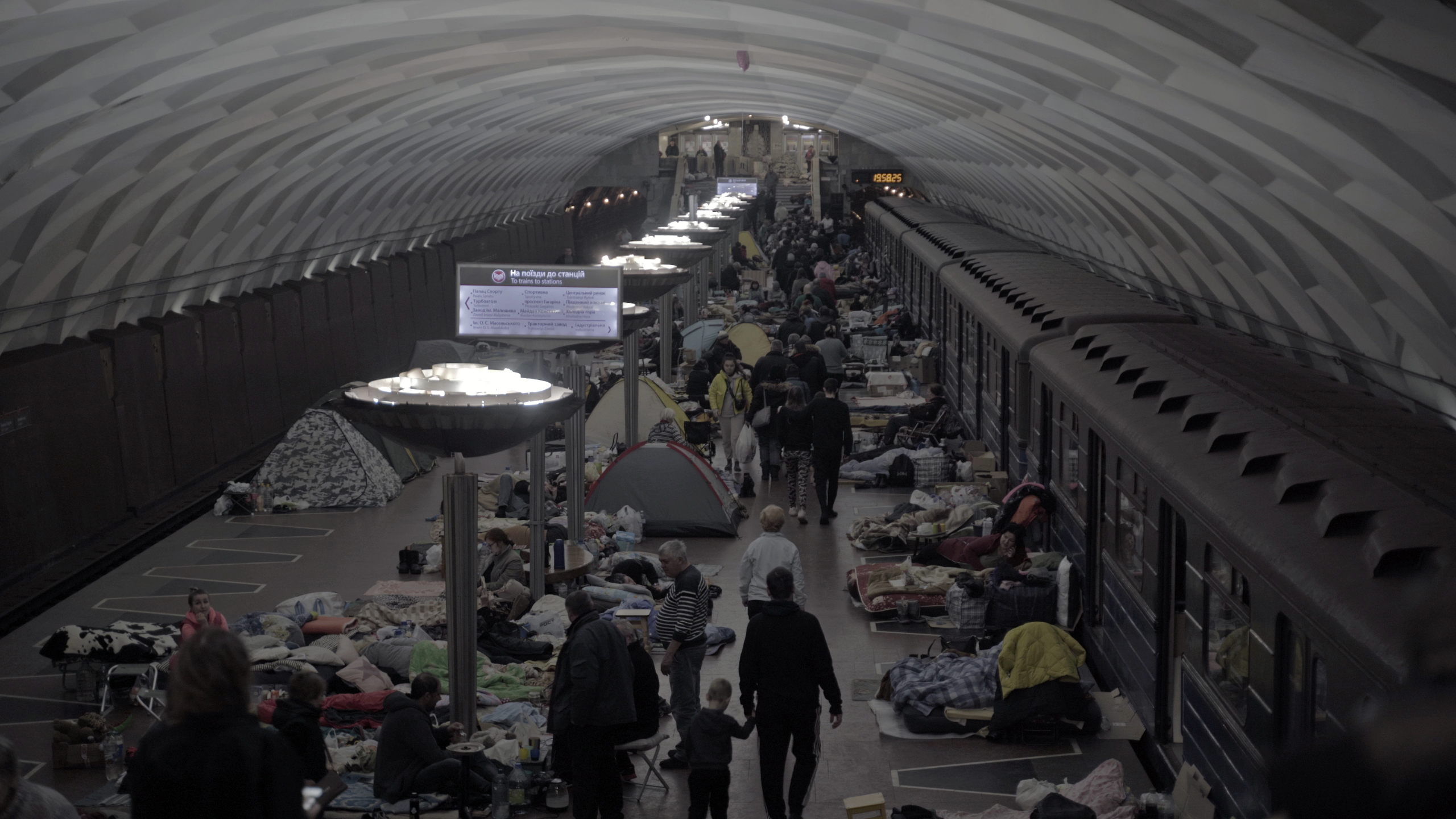
89 Days
Director – Pavlo Dorohoi
Since the first days of the war, the subway has become a bomb shelter for many Kharkiv residents. For two months, they have been equipping it for a more or less comfortable life. But the local government and the subway management want to vacate the subway of its residents and launch the transit network again.
Pavlo Dorohoi was born on June 22, 1985, in Kharkiv, Ukraine. In 2016, he studied at the DOKDOKDOK school of contemporary photography. In 2019, he directed his first short documentary film, Diary 1937, as part of the Documentary Film Lab. Since the beginning of the full-scale invasion, he has focused on documenting the situation in Kharkiv and the region. His photographs have been published in many European publications, including Der Spiegel, and the American New York Times, and New Yorker. From March to May, he worked on a documentary about the lives of people in the Kharkiv subway during the first months of the war. His feature-length documentary METRO 2022 won the EFM award at our 2nd edition of the Ji.Hlava New Visions Forum 2022.
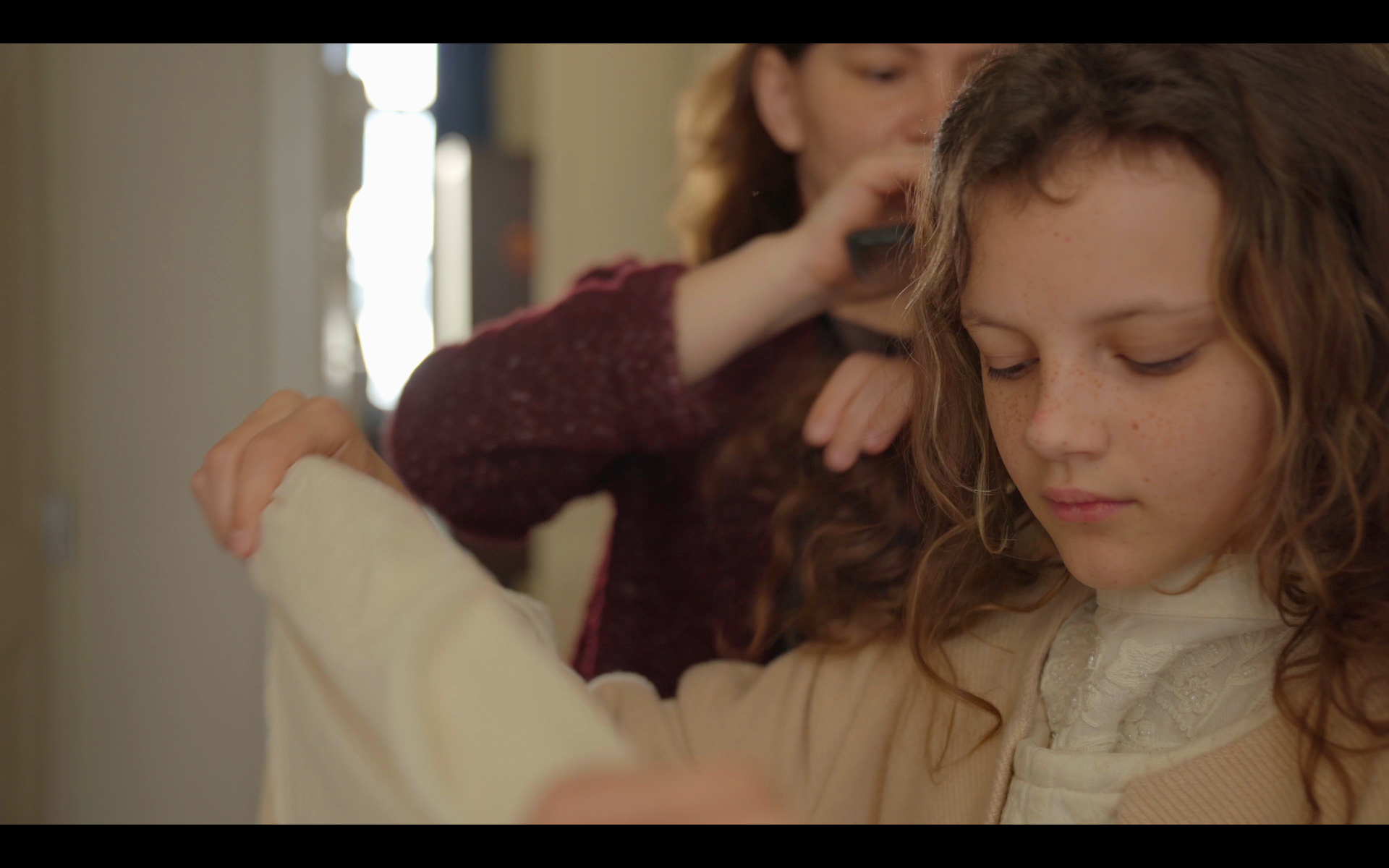
Under the Wing of a Night
Director – Lesia Diak
11-year-old Olesia from Ukraine is growing up under the wing of her mother, away from home. Dance and touch are her ways to release anger and adjust to the reality of Brussels. Every evening Olesia waits for dad's call from Ukraine. The family's extreme closeness nurtures the strength of this young girl whose fragility is exposed to constant war-related anxiety after the large-scale Russian invasion of Ukraine.
Lesia Diak is a Ukrainian documentary film director and producer. Having previously received a Master's degree in Communications, Lesia also graduated from the Serhiy Bukovsky Film Program in 2017. In 2022, she completed her studies at DocNomads, an international documentary film directing Master's program. Lesia is the author of several short documentaries selected for several international film festivals and primarily dedicated to trauma and healing experience. Her work-in-progress feature-length documentary debut Dad'sLullaby has received the award for best documentary film in post-production at Sarajevo Talents from the East and the post-production grant from IDFA Bertha Fund.
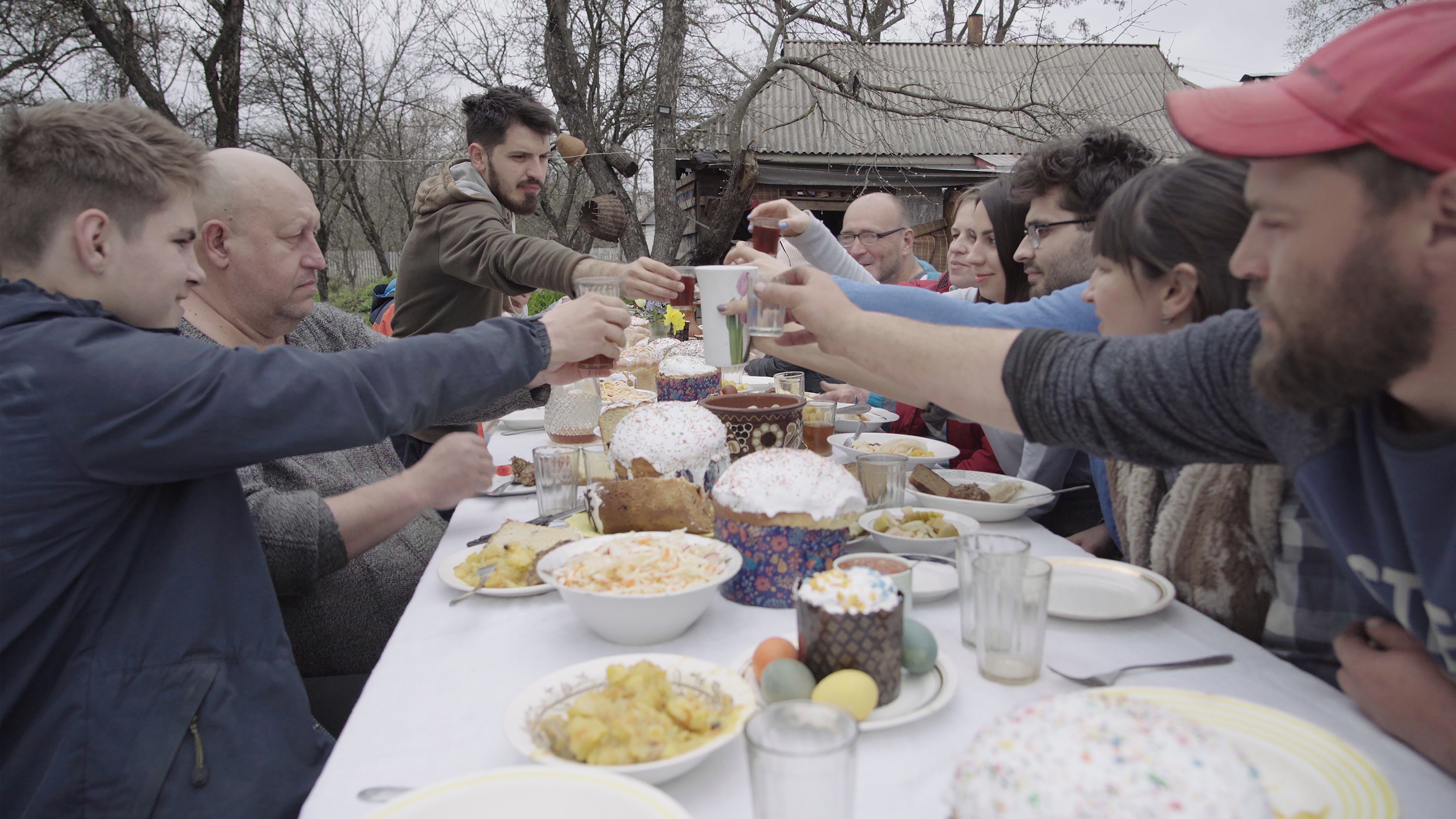
Guests from Kharkiv
Director – Halyna Lavrinets
Nelia is an owner of Omelko's House, a country house museum of folk domestic life in the village of Kozubivka, Poltava region. Nelia and her husband Oleksandr are helping relocated people who have fled from bombing and shelling attacks in Kharkiv to adapt in the village. They are becoming friends with one another.
Due to the war, Nelia is very anxious about famine. To help the displaced people from Kharkiv have enough food, she gives them a big garden patch and planting seeds, where they plant potatoes and vegetables.
Over time, it becomes evident that the people who moved here from the city are not ready for hard physical work on the land plot because they hope that the war will end soon. Without proper care, the planted harvest starts degrading. Will they be able to find a compromise, save the vegetable garden and their relationships?
Halyna Lavrinets is a filmmaker, culture manager, and producer. She has been a member of the Ukrainian Guild of Directors and the Ukrainian Film Academy since 2019, as well as a member of the # BABYLON'13 Creative Association of Ukrainian Documentary Filmmakers since 2015.
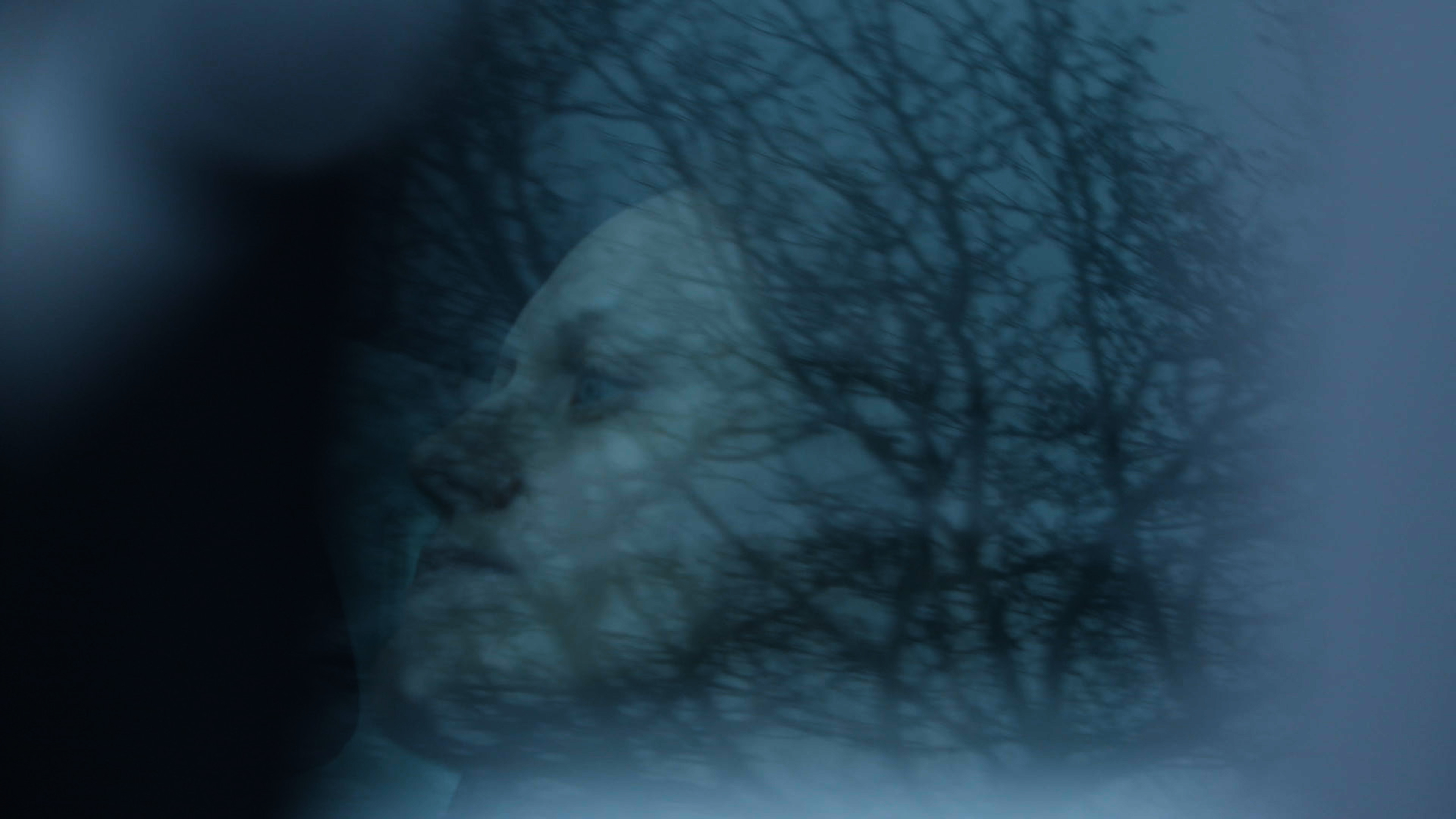
Our Robo Family
Director – Anastasiia Tykha
With the full-scale russian invasion of Ukraine, twelve-year-old Mykyta together with his parents and younger brother, had to flee their home in Vuhledar, a small mining town in Donetsk Oblast. Having settled at a new place, they put all their strength into resuming the operation of their main family work, a club for children who are interested in robotics and programming.
While preparing for the main event, the World Robot Olympiad, Mykyta and his team partner Oleksii are going through a lot of trial and error. But despite everything, they actively move forward, proving that hard work towards your goal with a true passion for it can help you get through the most difficult times.
In 2018, Anastasiia Tykha graduated from the Karpenko-Karyi Kyiv National University of Theater, Cinema and Television, the Documentary Film Department. In 2018, Anastasiia became a fellow of the Gaude Polonia scholarship program of the Minister of Culture and National Heritage of the Republic of Poland and joined the Doc.Pro documentary film department at the Wajda Film School in Warsaw.
She has been working in the Ukrainian film industry as a script supervisor and 2nd AD. Since 2019, Anastasiia has been a program director of KINOKO, the first Ukrainian film festival of the art of cinematography. Anastasiia is a member of the Directors Guild of Ukraine. She is also a part of the Babylon'13 film collective.
__________
These films were developed as part of the project “Civil Pitch 2.0” under the USAID/ENGAGE activity, which is funded by the United States Agency for International Development (USAID) and implemented by Pact. The contents of these films are the sole responsibility of Pact and its implementing partners and do not necessarily reflect the views of USAID or the United States Government.
The films have received financial support from Goethe-Institut.